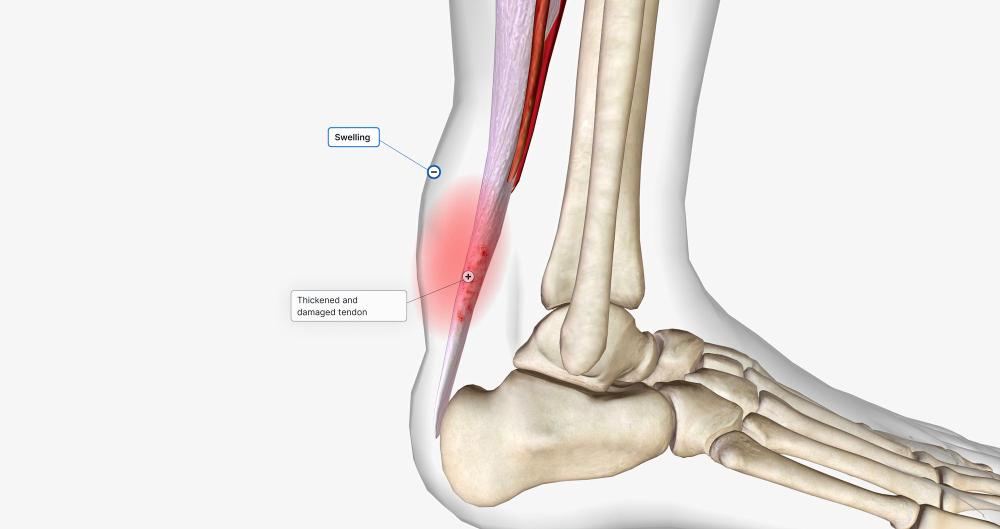Menu

Did you know that the Achilles tendon is the body’s strongest and thickest tendon? It connects the calf muscles to the heel bone and plays a vital role in our ability to walk, run, jump, and change direction.

While it’s incredibly powerful, it is also heavily used and has a relatively poor blood supply. This makes it awfully susceptible to injury and slower to heal, especially for athletes or anyone who engages in activities that require sudden bursts of speed, quick pivots, or repetitive movements.
In this brief article brought to you by Mid Penn Foot & Ankle Specialists, we spend some time to appreciate the Achilles tendon. If the damage is done and you’re looking for a licensed foot doctor in Dillsburg, then contact the specialists at Mid Penn. Our team is on standby to take your call or message today.
Located at the back of the ankle, the Achilles tendon is a rope-like structure that connects the gastrocnemius and soleus muscles in your calf to the heel bone. This tendon is responsible for helping you lift your heel off the ground. Without it, basic activities would become impossible.
We are committed to providing personalized, compassionate care for everyone who walks through our doors. If you’re ready to schedule an appointment with one of our doctors, give us a call or visit one of our locations today.
BOOK AN APPOINTMENTDespite being incredibly strong, the Achilles tendon has one significant drawback: it has a relatively poor blood supply. This makes it more prone to injury and means that any damage to the tendon can take a long time to heal. This can be especially frustrating for athletes or active individuals.
Several factors can contribute to Achilles tendon injuries. Some are related to the intensity or frequency of activity while others are linked to poor training habits or pre-existing conditions. It’s worth recognizing the most common causes:
When the Achilles tendon is injured, the consequences can range from mild discomfort to a complete rupture. Even a mild case of tendinitis can cause pain, swelling, and stiffness around the tendon. Here are some symptoms a reliable podiatrist will look for:
Based on your symptoms, the foot specialist will develop a treatment plan to get you back on your feet as soon as possible.
While some foot care like rest and ice can treat mild tendonitis, more moderate and severe cases will require a combination of appropriate treatment potentially including:
If you or a loved one is experiencing signs of an injured Achilles tendon, then contact Mid Penn Foot & Ankle Specialists to schedule an appointment as soon as possible. Putting pressure or stress on an injury can complicate issues further. Our team is ready to take your call or message today.
From the moment we step out of bed in the morning to the last stroll around the house…
Read MorePregnancy is an incredible journey, but let’s be real: it’s also tough on your body. From morning sickness…
Read MoreOur bodies are an intricate network of bones, muscles, tendons, and ligaments working together…
Read More